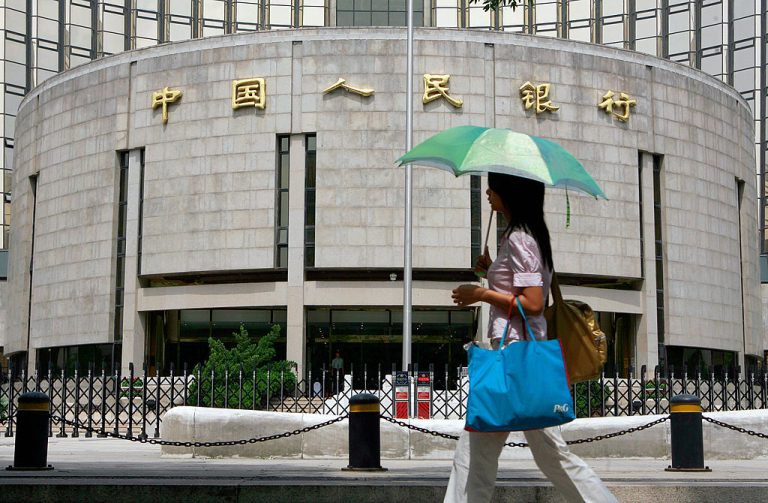As momentum for China’s post-pandemic economic recovery begins to decelerate, the upcoming stimulus measures — though highly anticipated — are not generating significant optimism among mainland investors, analysts say.
For nearly three years, the Chinese Communist Party (CCP) enacted some of the strictest virus restrictions in the world. The curbs included citywide lockdowns, travel bans, mass testing and quarantine mandates, and more. On many occasions, the hefty restrictions fueled a myriad of tragedies and violence — negatively impacting an already stagnating national economy.
According to leading financial firm Goldman Sachs, its clientele in mainland China encompasses a diverse group comprising asset managers in insurance firms, mutual funds, and private equity corporations. The investors, while optimistic, are maintaining “low expectations” for additional stimulus measures to bolster the sluggish economy. The views were published in a note from the firm’s economists on July 6.
MORE ON CHINA’S ECONOMY:
- China Hiding $3 Trillion in Foreign Currency ‘Shadow Reserves’, Former US Official Says
- Premier Li Qiang Talks Up China’s Growth at World Economic Forum Meeting
- Yellen’s Diplomatic Mission to Beijing: A Strategic Step Towards Cooling US-China Tensions
- Threads, Meta’s Twitter Rival, Goes Viral in Mainland China Despite Great Firewall
Factors at play
The clients’ consensus appears to suggest that near-term policy easing and structural reforms would prioritize addressing the obstacles impeding growth, as opposed to sparking significant expansion, the note said.
“Local clients held low expectations for policy easing and structural reforms this year,” noted Goldman’s economists, led by Maggie Wei. The collective sentiment among these clients implies that while the overall policy stance is likely to be more supportive in the near term relative to Q2, they perceive these easing measures more as a “policy put in place” to mitigate growth headwinds, rather than instigate robust growth.
Success
You are now signed up for our newsletter
Success
Check your email to complete sign up
This perspective arises in the wake of the People’s Bank of China’s decision to lower policy rates last month, which covered the medium-term lending facility (MLF) rate and loan prime rates (LPR). These actions starkly contrast with global central banks that have been raising rates to alleviate inflationary pressure.
Subsequent to the rate cuts, Wall Street banks are eyeing the upcoming Politburo meeting (the CCP’s most important decision-making body) with anticipation, speculating on the possibility of more substantial measures being introduced. Goldman’s mainland clients, however, remain skeptical about any significant actions resulting from this meeting — the second in a series of three.
RELATED: Xi Inspects Chinese Military’s Eastern Theater Command, Tells Them to Increase Odds of Victory
“Local clients did not expect major policy easing measures or structural reform measures to be rolled out in the July Politburo meeting,” the economists disclosed.
Apprehension remains high
Following the central bank’s policy rate cuts, China’s sovereign bond prices saw an upturn, while the Chinese yuan lingered around its weakest levels since November — trading at 7.2492 against the U.S. dollar on Thursday, July 7.
In April’s meeting, the country’s top brass indicated the economy’s internal drive was lacking, suggesting an insufficiency in demand.
Goldman’s note further mentioned that while its local clients hold a “seemingly less pessimistic view” regarding China’s near-term growth, they remain apprehensive about the economy’s long-term trajectory.
Such reservations about the economic outlook are not confined to Chinese investors. Tara Hariharan, NWI Management’s managing director of global macro research, told CNBC that investor sentiment towards China’s economy is growing in a negative trend.
Stagnant growth
“Investors have become increasingly disillusioned and disengaged from China’s slowing growth, tighter regulatory policy, as well as, of course, this general souring of official U.S.-China relations,” said Hariharan.
She added that unless “decisive and significant measures” are implemented, rekindling investor confidence might not be an easy task.
“I think China is trying its best to go on a charm offensive by making overtures to U.S. corporations to say do more business in China, and also reviving these government-level communications,” she said.
However, Hariharan warned, “I think these charm offensives will do very little to revive portfolio flows in the short-term unless we get some very significant and innovative policy actions to revive Chinese growth.”














